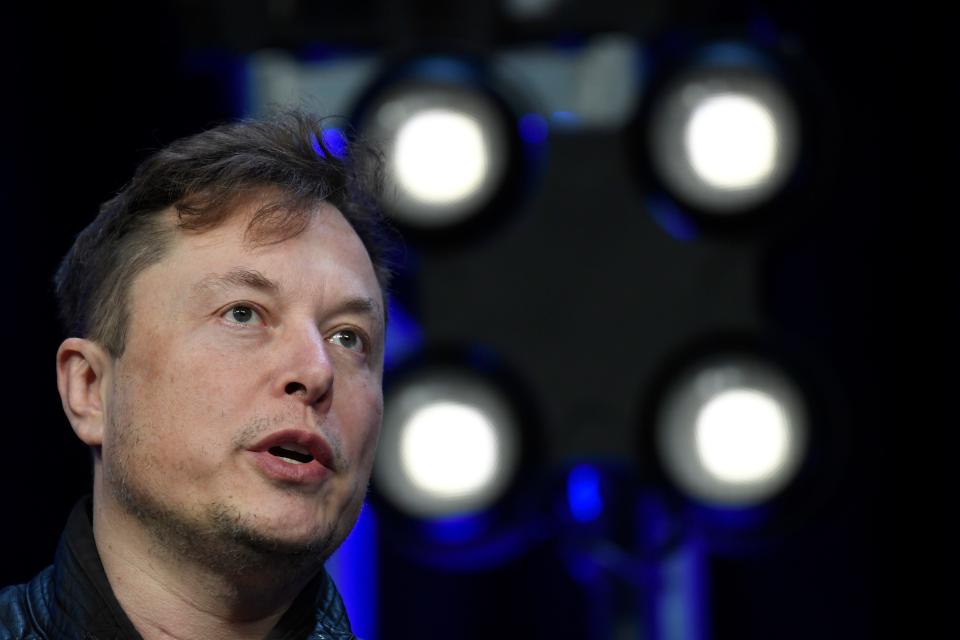Stop freaking out about Elon Musk buying Twitter. We have no clue what will happen.
In 1946, the president of 20th Century Fox predicted that television would never catch on. In 1959, the U.S. postmaster general claimed that before we reached the moon, mail would be delivered from Australia to New York by guided missiles. In 1961, an FCC commissioner declared there was practically no chance satellites would be used to improve telephone, television or radio service.
Heck, in 2006, The New York Times personal-tech correspondent predicted that Apple would release a phone "probably never." Almost nine months to the day, Apple announced the iPhone.
Predictions about what Elon Musk will do with Twitter are premature
From the day Elon Musk struck a deal to buy Twitter, predictions and reactions abounded: Sen. Elizabeth Warren tweeted, “This deal is dangerous for our democracy." Sen. Marsha Blackburn tweeted, “Today is an encouraging day for free speech.” The ACLU in their official statement expressed “worry” and “danger.” The president of the Heritage Foundation said, “Conservatives and those who value the First Amendment are watching with joy.” And these are only a sample.

Let’s slow down for a minute. No one, not even Elon, knows where this will end.
The entire debate surrounding how we think about social media platforms never accounted for this moment. None of the arguments about regulating speech imagined a world where Twitter was a private company run by a self-described "free speech absolutist" with his own mixed history when it comes to speech.
What is Elon Musk up to?: Are you worried about Elon Musk taking over Twitter? You should be.
Is Musk good or bad for the future of online speech? We'll know soon enough.
This moment is a reminder that the factors and assumptions surrounding today's most important issues can change quickly and force us to reassess our own positions and preferences.
Let's slow down to see what happens
It is time to call a Big Tech detenté. In other words, let’s take a breather.
Congress, federal agencies and state houses across America: Let's take a year, push pause, and see where things go before claiming that this moment confirms what we think we already know about regulating the internet.
Opinions in your inbox: Get a digest of our takes on current events every day
Good public policy must rest on observation and evidence. Without these, we are merely making predictions, like when Time Magazine quoted futurists who predicted remote shopping would flop (1966).
As for internet policy, technology and industry are consistently outpacing us. Experts call this the “pacing problem.”
All of these factors — from Musk’s Twitter deal to rapid technological change — should be cause for humility, not a call to regulate faster.
Internet is still young
It may not feel this way, but we are still in the early days of public Internet. The Mosaic browser launched in 1993, effectively launching widespread public use of the internet. We are only 29 years into iterating on this world-changing technology.
Just 10 years ago, things looked very different, and certainly they did 29 years ago. Twelve months from now, things will continue to radically evolve.
WE DID IT!: U.N. climate change report says we're on the path to an 'unlivable' planet.
Remember, this is not the first time we've jumped to conclusions about a technology. We're more prone to getting the near future wrong than we are to getting it right. Many dismissed the telephone as a "nuisance of the first magnitude," and there was even a time when the Chicago Times removed telephones from its headquarters.
The proliferation of children's books was deemed "utterly worthless," accompanied by a harrowing story of a young boy checking out four books a week from his local library, described as "very rapid and, doubtless, very injurious work."
Why my dad and I helped: We went to Poland and Ukraine to help refugees, including teens just like me
With Musk at the helm of Twitter, we have an opportunity to test nearly every assumption we have relied on to support most of today's popular policy proposals. Many of the problems may be rendered moot. Or they may be amplified. To ensure we're focusing our attention where it is needed, we need to let the dust settle before rushing to respond.
It’s time to pause. Before doubling down on our presupposed solutions, we need to understand where the problems exist. This is not a demand for folks to retreat. Nor is it an unreasonable ask. It is a call to reconsider what tomorrow holds without giving in to the news of the day.
Just give it a year. Let’s see where this goes.
Christopher Koopman is executive director and Taylor Barkley is the technology and innovation director at the Center for Growth and Opportunity at Utah State University.
You can read diverse opinions from our Board of Contributors and other writers on the Opinion front page, on Twitter @usatodayopinion and in our daily Opinion newsletter. To respond to a column, submit a comment to letters@usatoday.com.
This article originally appeared on USA TODAY: Elon Musk buying Twitter shouldn't freak you out

